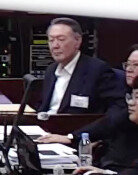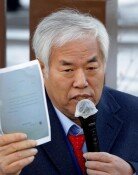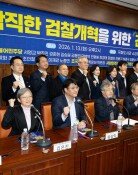[Contribution] Has Japan given up Asian entente?
[Contribution] Has Japan given up Asian entente?
Posted April. 16, 2001 13:03,
![[Contribution] Has Japan given up Asian entente?](https://dimg.donga.com/egc/CDB/ENGLISH/Article/20/01/04/16/2001041615798.jpg)
There have been positive developments between Seoul and Tokyo since the two nations were selected in May 1996 to co-host the 2002 World Cup soccer matches. Many Japanese youths were to be seen in the streets of Seoul and Pusan with the inflow of Japanese popular culture having been underway without a hitch.
Things of Korean have caught on also in Japan. In its cover story headed ``Korea inside Japan`` a recent issue of Newsweek featured the rising popularity of Korean songs and movies among the young people of Japan. Then, a dispute popped up over the naming of the two organizing countries of the 2002 World Cup, complicated of late by controversies over a distorted Japanese history textbook.
Japan says that its government is not responsible for revising the content of the textbook. But the argument does not hold water as long as the Japanese government screens and approves it before it can be adopted by schools.
Authors of the disputed textbook contend that they wanted to get out of a masochistic interpretation of history on the part of the Japanese following its defeat in World War II. However, the best way for them to unburden themselves of such an obsession with self-reproach lies in accepting facts as they were.
When I raised the question of comfort women for Japanese soldiers at the National Assembly in 1988 I quoted a Japanese woman who had been one herself, as reported by the press. The woman by the name of Shiroda testified that at the end of the Pacific War on a Southeast Asian front she witnessed a group of Korean sex slaves being taken aboard a truck and that they had not been heard from again after a report of gunfire from the jungle.
Provided that her testimony was true, the act of the Japanese army was committed after Japan forfeited its right of belligerency upon its defeat in the war and it could constitute a more grave crime, different from ordinary war crimes. Unfortunately, the woman died soon after she confessed her experience to a pastor of the church she attended.
In order for Japan to come to terms with its old wrongdoing, it ought to show real courage to have survivors and witnesses of the historical nightmare come out to tell the truth and repent, instead of trying to destroy or gloss over the evidence of the woman`s account and many similar incidents.
In 1991 the United States wanted to invite Japanese officials and survivors of the Pacific War to a big memorial service for the war dead on the 50th anniversary of the surprise attack on Pearl Harbor. Japan declined the invitation, and its prime minister refused to attend. In 1995 the then-U.S. president and leaders of Europe gathered for an event to honor the termination of the Second World War 50 years ago. At the time, the presence of German Chancellor Helmut Kohl with those allied leaders of former victors 50 years after the war more than evinced the responsibility and responsiveness of the German nation. In 1995 Japan asked the United States to apologize for dropping atomic bombs on Hiroshima and Nagasaki only to be politely rebuffed by President Clinton.
These examples might give us cause for concern that the current dispute over the history textbook could give greater credence to the biased argument of some Japanese historians that the United States had schemed to induce the Pacific War and that the bombing of Pearl Harbor served to help more Japanese believe in the historical falsity. What we are afraid of is resurgent glorification of power on the reasoning that it was not wrong to start a war but it was wrong to lose one.
We should not indulge in an emotional reaction to the lack of understanding and absurd verbal abuses on the part of some Japanese. But our reasonable indignation is natural and necessary, and it needs to be reflected in Seoul`s foreign policy. A German poet, Novalis, said that there cannot be a partial history and that all histories are part of the global history. Japan is advised against making an attempt to reconstruct its history and requested to courageously recognize its past within the context of world history.
The opening ceremony of 2002 World Cup to take place in Seoul on May 31 is expected to be an occasion for all Asian leaders to make friends anew, hand in hand, reaffirming their shared commitment to peace in Asia.
Chung Mong-Joon (co-chairman of the 2002 World Cup Organizing Committee and member of National Assembly Committee on Unification, Foreign Affairs and Trade)
Related Articles
- NK condemns Prof. Sakamoto's absurd remarks
- 'Japanese gov't responsible for textbook distortion': Amb. Choi
- Distorted textbooks 'no biggy' for Japanese ruling party leaders
- An 'all-out war' against Japan over textbooks
- All-out effort to correct textbook pledged
- NK demands halt to Japan's history distortions
- Assembly speaker to write Japan protest letter
- Aftermath of Korean ambassador's recall from Japan
- Lawmakers question cabinet on textbook issue
- Protesting lawmakers leave for Japan
- Children denounce Japanese history textbook
- Ambassador to Japan to be recalled over textbook
- Japanese textbook controversy (3)
- How to address the textbook controversy?
- Korea expresses regret over textbook 'distortions'
- Japanese textbook controversy (2)
- South, North Korean lawmakers to oppose Japanese textbook distortion
- Statement by MOFAT spokesman on the outcome of the Japanese government`s screening of history textbooks
- Seoul to demand new revision of textbooks
- Japanese textbook controversy (1)
- Overview of Japanese history textbook content
- Controversial Japanese history textbook approved
Related Opinions
- [Editorial] Belated diplomatic maneuvers
- [Reporter's View] Envoy's recall makes few ripples in Japan
- [Editorial] Japan has no claim to world leadership



![[속보]국힘 윤리위, 한동훈 제명 결정…장동혁호 ‘뺄셈 정치’ 가나](https://dimg.donga.com/c/138/175/90/1/wps/NEWS/IMAGE/2026/01/14/133151701.1.jpg)



